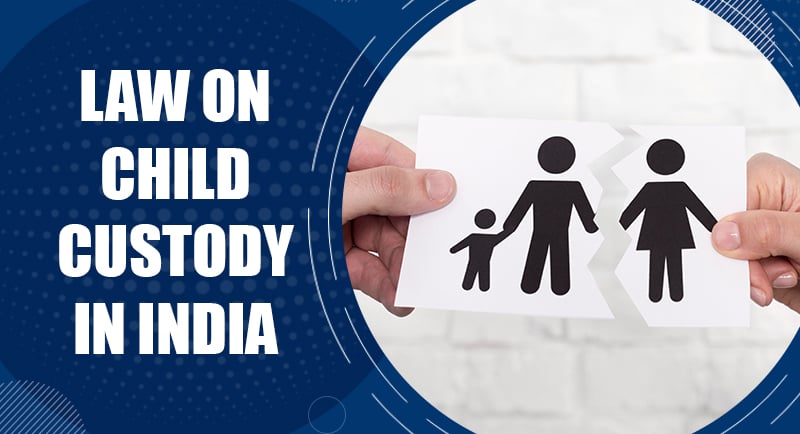AdVocate harshit Sachar | chamber no: 617 | district courts ludhiana | 2817 gurdev nagar ludhiana | ✆+91 7889228369
Child Custody Laws After Divorce: What Parents Must Know
Understanding legal aspects of child custody in India after divorce helps parents make informed and responsible decisions.
Harshit Sachar - Advocate
8/5/20252 min read


Child Custody Laws After Divorce: What Parents Must Know
Child custody is one of the most sensitive and emotionally challenging aspects of a divorce. In India, the courts prioritize the welfare and best interests of the child while deciding custody. Whether you are a mother or father, understanding the legal framework and procedures can help you navigate this complex process more confidently.
Types of Custody in India
Physical Custody: When the child resides with one parent, while the other is granted visitation rights.
Legal Custody: Refers to the right to make decisions regarding the child's education, health, and welfare. This can be joint or sole.
Joint Custody: Involves both parents taking turns to keep the child, ensuring shared responsibility.
Sole Custody: Granted when one parent is deemed unfit due to issues like abuse, addiction, or neglect.
Who Can Claim Custody?
Either parent can apply for custody, but the court evaluates multiple factors before awarding it:
The emotional, physical, and educational needs of the child
Age and gender of the child (young children are often placed with the mother)
The mental and financial stability of each parent
Child’s preference, if the child is mature enough to express a reasoned choice
Custody under Different Personal Laws
Hindu Law (Hindu Minority and Guardianship Act, 1956): The welfare of the child is paramount. A natural guardian is usually the father, but custody may go to the mother depending on circumstances.
Muslim Law: The mother is typically granted custody (Hizanat) until a certain age, after which the father may assume custody.
Christian Law: Governed by the Indian Divorce Act, 1869, the court decides based on the child's welfare.
Parsi Law: The Guardian and Wards Act, 1890 applies.
Role of Guardian and Wards Act, 1890
This secular law empowers courts to decide custody cases for all communities, especially when the religious law does not address specific scenarios. The Act is commonly used in contested custody battles.
Child Custody and Visitation Rights
Courts encourage both parents to maintain a meaningful relationship with the child unless it affects the child’s safety. In mutual consent divorce, custody is often settled amicably through agreement.
Enforcement and Modification of Custody Orders
Custody orders are enforceable by law. If one parent violates them, the aggrieved party can approach the court. Custody arrangements can also be revised later if circumstances change.
Conclusion
Custody decisions are not about “winning” but ensuring the child's happiness and healthy development. Legal advice and empathetic negotiation can help both parents arrive at solutions in the best interest of the child.
Services
Sachar Law Firm – Advocate, Lawyer, Attorney & Solicitor Services in India | Ludhiana, Punjab.
Expert legal advice across various practice areas - Civil, Criminal, Divorce and Matrimonial, Consumer and Corporate laws, Bail Matters, Property Contract Disputes, Insurance claim disputes, cyber Crime cases, Cheque bounce, Family Divisions, Arbitration. Bail Matters, Electricity Board Cases, Appeals before Session court Ludhiana, Marriage certificate, Court Marriage, Succession Certificate Accident Claim (MACT), NRI Legal Matters, NRI Property Matters.
“Get in Touch with Sachar Law Firm”
Quick Links
© 2025. All rights reserved.
Advocate Harshit SACHAR
Legal Blog
2817, 1st Floor , Gurdev Nagar, Ludhiana, Punjab -141001
Address: Office Cum Res:
Corporate Liquidation and Recovery Litigation
☎️ 0161 7965410
